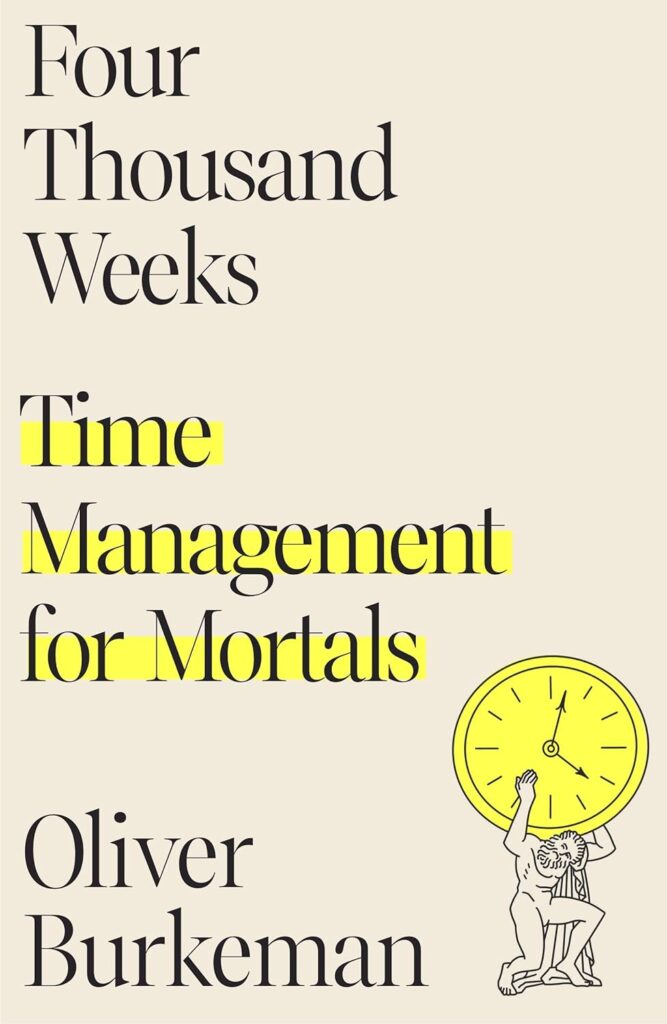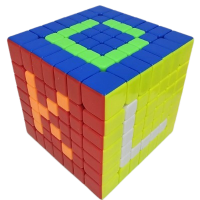Four Thousand Weeks provides a fresh and insightful perspective on your relationship with time by examining productivity, distractions, and being present. Oliver unpacks several curiosities about how we spend our time, such as why we easily get distracted when making difficult decisions and how a choice’s meaning is enhanced because it requires us to forego all other possibilities. Working in an industry where I build products whose purchase experience requires customers to confront and plan for the uncertainties of life, this books helps me better empathize with what is specifically needed to achieve financial peace of mind. In my everyday life, this book has given me an enhanced perspective of what I choose to focus on vs what to let go of, the limits of productivity, and how to be more present.
You should read this book if you…
- want insights on how to better spend your time
- want a better balance between living in the present and planning for the future
- seek to understand why you waste time, despite the best of intentions
Additional Information
Year Published: 2021
Book Ranking (from 1-10): 9 – Excellent – Broad and very well articulated insights
Ease of Read (from 1-5): 2 – Quick read
Key Highlights
- Our troubled relationship with time arises largely from this same effort to avoid the painful constraints of reality. And most of our strategies for becoming more productive make things worse, because they’re really just ways of furthering the avoidance. After all, it’s painful to confront how limited your time is, because it means that tough choices are inevitable and that you won’t have time for all you once dreamed you might do. It’s also painful to accept your limited control over the time you do get: maybe you simply lack the stamina or talent or other resources to perform well in all the roles you feel you should
- Since hard choices are unavoidable, what matters is learning to make them consciously, deciding what to focus on and what to neglect, rather than letting them get made by default— or deceiving yourself that, with enough hard work and the right time management tricks, you might not have to make them at all
- This helps explain why stuffing your life with pleasurable activities so often proves less satisfying than you’d expect. It’s an attempt to devour the experiences the world has to offer, to feel like you’ve truly lived— but the world has an effectively infinite number of experiences to offer, so getting a handful of them under your belt brings you no closer to a sense of having feasted on life’s possibilities.
- What’s needed instead in such situations, I gradually came to understand, is a kind of anti- skill: not the counterproductive strategy of trying to make yourself more efficient, but rather a willingness to resist such urges— to learn to stay with the anxiety of feeling overwhelmed, of not being on top of everything, without automatically responding by trying to fit more in. To approach your days in this fashion means, instead of clearing the decks, declining to clear the decks, focusing instead on what’s truly of greatest consequence while tolerating the discomfort of knowing that, as you do so, the decks will be filling up further, with emails and errands and other to- dos, many of which you may never get around to at all
- Convenience culture seduces us into imagining that we might find room for everything important by eliminating only life’s tedious tasks. But it’s a lie. You have to choose a few things, sacrifice everything else, and deal with the inevitable sense of loss that results
- In other words, it’s precisely the fact that I could have chosen a different and perhaps equally valuable way to spend this afternoon that bestows meaning on the choice I did make. And the same applies, of course, to an entire lifetime. For instance, it’s precisely the fact that getting married forecloses the possibility of meeting someone else— someone who might genuinely have been a better marriage partner; who could ever say?— that makes marriage meaningful
- The real measure of any time management technique is whether or not it helps you neglect the right things
- It’s worth pausing to notice how exceptionally strange this is. Why, exactly, are we rendered so uncomfortable by concentrating on things that matter— the things we thought we wanted to do with our lives— that we’d rather flee into distractions, which, by definition, are what we don’t want to be doing with our lives? The solution to this mystery, dramatic though it might sound, is that whenever we succumb to distraction, we’re attempting to flee a painful encounter with our finitude— with the human predicament of having limited time, and more especially, in the case of distraction, limited control over that time, which makes it impossible to feel certain about how things will turn out
- The overarching point is that what we think of as “distractions” aren’t the ultimate cause of our being distracted. They’re just the places we go to seek relief from the discomfort of confronting limitation
- “Because children grow up, we think a child’s purpose is to grow up,” Herzen says. “But a child’s purpose is to be a child. Nature doesn’t disdain what only lives for a day. It pours the whole of itself into each moment… Life’s bounty is in its flow. Later is too late”
- As long as you believe that the real meaning of life lies somewhere off in the future— that one day all your efforts will pay off in a golden era of happiness, free of all problems— you get to avoid facing the unpalatable reality that your life isn’t leading toward some moment of truth that hasn’t yet arrived
- When your relationship with time is almost entirely instrumental, the present moment starts to lose its meaning. And it makes sense that this feeling might strike in the form of a midlife crisis, because midlife is when many of us first become consciously aware that mortality is approaching— and mortality makes it impossible to ignore the absurdity of living solely for the future
- Choosing a lifestyle like Salcedo’s might nonetheless be guilty of the same basic mistake— of treating our time as something to hoard, when it’s better approached as something to share, even if that means surrendering some of your power to decide exactly what you do with it and when
- The peace of mind on offer here is of a higher order: it lies in the recognition that being unable to escape from the problems of finitude is not, in itself, a problem. The human disease is often painful, but as the Zen teacher Charlotte Joko Beck puts it, it’s only unbearable for as long as you’re under the impression that there might be a cure. Accept the inevitability of the affliction, and freedom ensues: you can get on with living at last.
- The attempt to attain security by justifying your existence, it turns out, was both futile and unnecessary all along. Futile because life will always feel uncertain and out of your control. And unnecessary because, in consequence, there’s no point in waiting to live until you’ve achieved validation from someone or something else. Peace of mind, and an exhilarating sense of freedom, comes not from achieving the validation but from yielding to the reality that it wouldn’t bring security if you got it

Discover more from The Broader Application
Subscribe to get the latest posts sent to your email.
